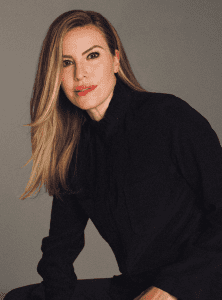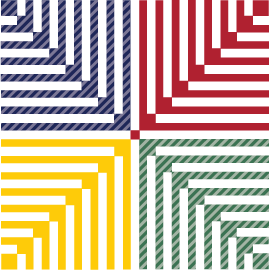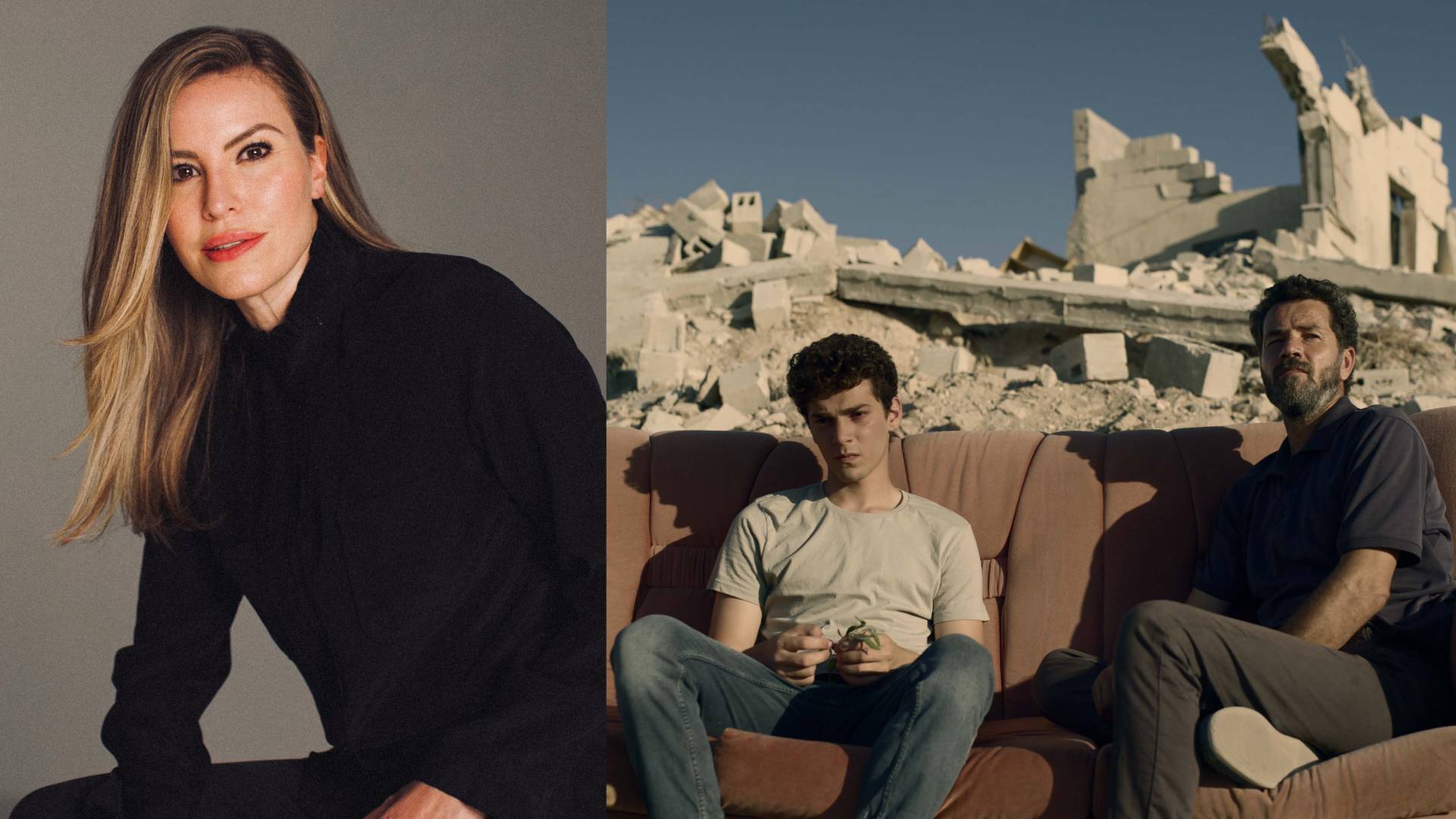The Teacher
by director Farah Nabulsi
The BPFF’s opening screening this year is The Teacher, a film about a Palestinian school teacher (Saleh Bakri) who struggles to reconcile his risky commitment to political resistance with his emotional support for one of his students (Muhammad Abed El Rahman) and the chance of a new relationship with a volunteer worker (Imogen Poots).
Director Farah Nabulsi, Academy Award®-nominated Palestinian British filmmaker, had her directorial debut with The Present, a film that premiered at Clermont-Ferrand International Short Film Festival in 2020 and won the coveted Audience Award for Best Film. It went on to win over 50 International Film Festival Jury and Audience Awards, a BAFTA® award, and an Oscar® nomination. The Present can be found on Netflix Worldwide.
The Teacher premiered at the Toronto International Film Festival in 2023. It is Nabulsi’s directorial feature length debut. BPFF e-mail interviewed her in preparation for the screening.
This film is very relevant today given the genocide happening in Gaza and the hostage situation. There is a lot to take in. What is the number one thing you hope that the audience will takeaway from this film?
My intention with The Teacher was always to take audiences on an intense, emotional journey into the lives and experiences of the characters, and hope I leave them contemplating the choices and decisions the characters make and the cruel reality in which they are forced to make them.
I want to leave audiences with a sense of empathy and understanding for the Palestinian experience, and a deeper appreciation for the humanity and dignity of the people. I hope that the film inspires audiences to think critically about the occupation and to challenge their assumptions about the “conflict”.
Given the ongoing genocide and slaughter in Gaza, I really hope the film offers a deeper and more personal context to audiences of this sociopolitical landscape and the lived Palestinian experience; a more human context that is often missing from the discourse.
Ultimately – and most importantly – I hope that audiences will be inspired to take action, to educate themselves about the occupation, and to use their voices to advocate for justice and equality.
It feels authentic and still incredible. Did you get firsthand accounts from Palestinians who have been in these specific situations-homes being destroyed by the IDF, friends and family shot by illegal settlers, hostages being held?
Over the years, I have met and spoken to dozens of Palestinians who have experienced firsthand many of the absurd and cruel things that take place in the film. I have also spoken to many Palestinians who have been arrested and detained for non-violent resistance against the occupation. Their stories of resilience and determination are truly inspiring, and I definitely sought to capture some of that spirit in the character of Basem, the teacher.
I have also drawn inspiration from my own experiences in Palestine and witnessing the harsh reality. I have seen the devastating impact of home demolitions, the trauma inflicted at Israeli checkpoints and the violence perpetrated by illegal settlers. These experiences, combined with my conversations with Palestinians, helped shape the narrative.
It is natural to feel anger over what Palestinians are experiencing, but also sympathy for the hostages and their families. Why did you decide to include the fictional American Jewish parents of the hostage in the film and build a separation between them and the Israeli power brokers?
As a Palestinian filmmaker, I wanted to explore the human dynamics, emotions and experiences that drive someone to make the choices they make, under conditions such as an Occupation. The American father, Simon, is deeply invested in the struggle for justice for his son, yet torn between his love for him and the complexities of the situation. By separating the American parents from the Israelis, I wanted to create a more nuanced exploration of the individual stories and experiences of the characters, rather than reducing them to nationalistic or ideological labels. And by focusing on the conflicts between the characters, I hoped to create a sense of empathy and understanding that transcends borders and ideologies.
The harsh realities of the occupation and its impact on human life become increasingly apparent as the story unfolds, and the prisoner exchange – where Simon’s son is released in exchange for 1000 Palestinians – serves as a stark reminder of the disproportionate value placed on human life. This plot point is actually inspired by the true story of Gilad Shalit, an Israeli soldier who was captured by Palestinian militants in 2006 and released in 2011 in exchange for over 1,000 Palestinian prisoners, hundreds of them women and children.
Simon’s character, the American father, serves as a catalyst for reflection; I hope that it will encourage audiences to consider the human cost of occupation.
How long did it take you to shoot this, and what hurdles did you face? Did you have any access issues?
We shot the film over 3 months in the Nablus area of Palestine. Other than the usual practical and logistical toils and turbulences of making an independent film, when shooting in the West Bank of Palestine you also have the ongoing settler colonization and military occupation taking place in real time around you. This presents issues like Israeli checkpoints or roads being closed, which is very frustrating.
But personally, the biggest challenge was the mental and emotional toll. You’re making a film where the story is set in a harsh reality, you have that reality unfolding around you in real time and you have to shoot a film about it. It’s quite convoluted.
For example, during the start of our shooting period, illegal Israeli settlers were torching olive trees in the village of Burin; which is something that takes place in the film, exactly where our story is literally set. Another example- I met a couple and their six young children one morning at 5 am on my way to the set, standing on the side of the road in front of the rubble of their freshly demolished home, again, something portrayed in the film.
They even started to drop bombs on Gaza during production, which really heightens tensions all over Palestine. So, aside from these things naturally having everyone on edge, for me it was the mental and emotional toll of taking all this in while trying to remain upbeat, continue to lead as a director, and deal with the pressure of those injustices all around us.
As a producer on the film as well, there was also the challenge of balancing a heavy responsibility to keep everyone safe, but also wanting and needing to complete the film before anything bigger erupted.
Who do you want to thank for this film?
My brothers and sisters in Palestine – from whom I draw the most inspiration, beyond anything or anyone else. And specifically, the Palestinians in Gaza who are enduring unimaginable loss and suffering right now. Their resilience and determination in the face of overwhelming adversity is a constant source of inspiration and motivation for me.


Farah Nabulsi, director of The Teacher


